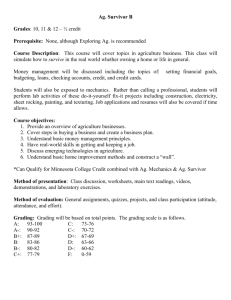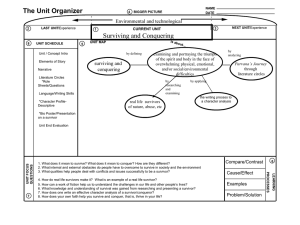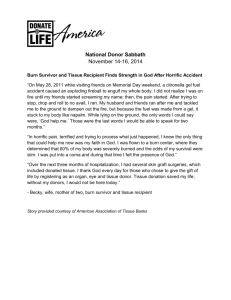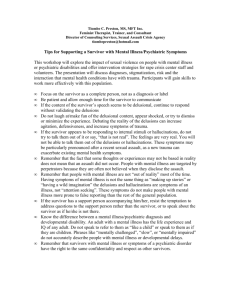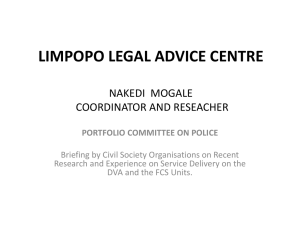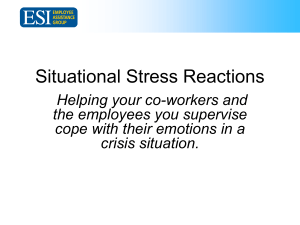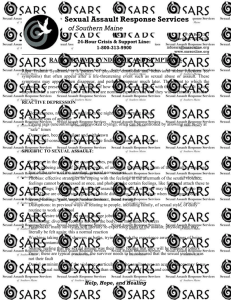What To Do If Someone Reports Sexual Assault or Harassment To
advertisement
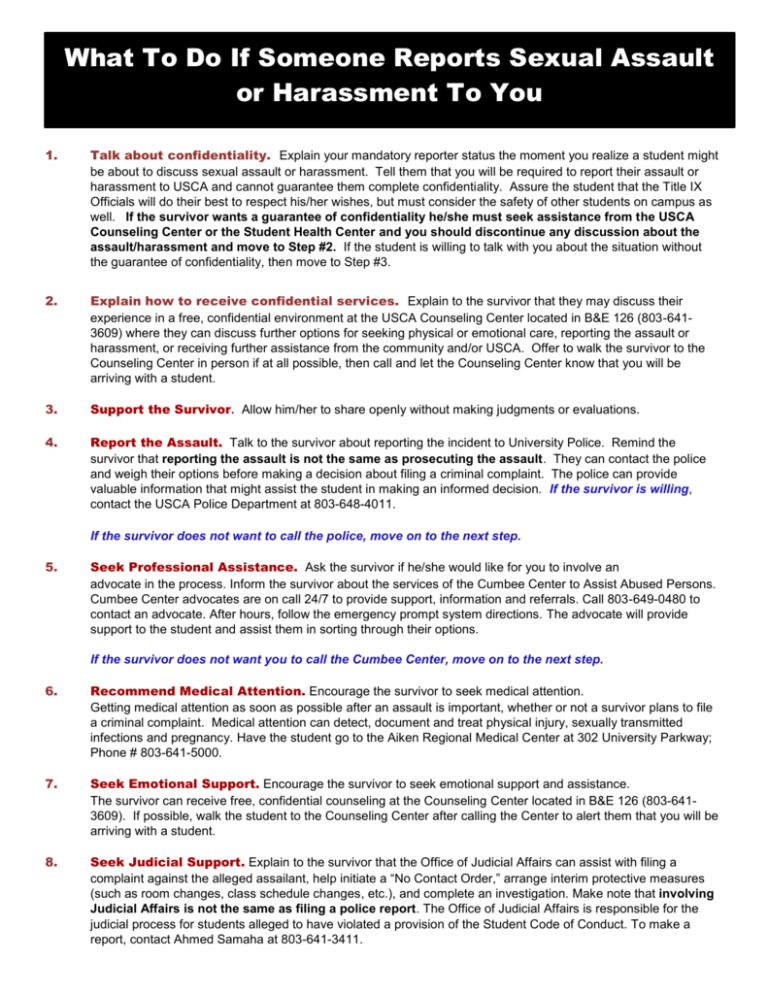
What To Do If Someone Reports Sexual Assault or Harassment To You What To Do If Someone Reports Sexual Assault or Harassment To You 1. Talk about confidentiality. Explain your mandatory reporter status the moment you realize a student might be about to discuss sexual assault or harassment. Tell them that you will be required to report their assault or harassment to USCA and cannot guarantee them complete confidentiality. Assure the student that the Title IX Officials will do their best to respect his/her wishes, but must consider the safety of other students on campus as well. If the survivor wants a guarantee of confidentiality he/she must seek assistance from the USCA Counseling Center or the Student Health Center and you should discontinue any discussion about the assault/harassment and move to Step #2. If the student is willing to talk with you about the situation without the guarantee of confidentiality, then move to Step #3. 2. Explain how to receive confidential services. Explain to the survivor that they may discuss their experience in a free, confidential environment at the USCA Counseling Center located in B&E 126 (803-6413609) where they can discuss further options for seeking physical or emotional care, reporting the assault or harassment, or receiving further assistance from the community and/or USCA. Offer to walk the survivor to the Counseling Center in person if at all possible, then call and let the Counseling Center know that you will be arriving with a student. 3. Support the Survivor. Allow him/her to share openly without making judgments or evaluations. 4. Report the Assault. Talk to the survivor about reporting the incident to University Police. Remind the survivor that reporting the assault is not the same as prosecuting the assault. They can contact the police and weigh their options before making a decision about filing a criminal complaint. The police can provide valuable information that might assist the student in making an informed decision. If the survivor is willing, contact the USCA Police Department at 803-648-4011. If the survivor does not want to call the police, move on to the next step. 5. Seek Professional Assistance. Ask the survivor if he/she would like for you to involve an advocate in the process. Inform the survivor about the services of the Cumbee Center to Assist Abused Persons. Cumbee Center advocates are on call 24/7 to provide support, information and referrals. Call 803-649-0480 to contact an advocate. After hours, follow the emergency prompt system directions. The advocate will provide support to the student and assist them in sorting through their options. If the survivor does not want you to call the Cumbee Center, move on to the next step. 6. Recommend Medical Attention. Encourage the survivor to seek medical attention. Getting medical attention as soon as possible after an assault is important, whether or not a survivor plans to file a criminal complaint. Medical attention can detect, document and treat physical injury, sexually transmitted infections and pregnancy. Have the student go to the Aiken Regional Medical Center at 302 University Parkway; Phone # 803-641-5000. 7. Seek Emotional Support. Encourage the survivor to seek emotional support and assistance. The survivor can receive free, confidential counseling at the Counseling Center located in B&E 126 (803-6413609). If possible, walk the student to the Counseling Center after calling the Center to alert them that you will be arriving with a student. 8. Seek Judicial Support. Explain to the survivor that the Office of Judicial Affairs can assist with filing a complaint against the alleged assailant, help initiate a “No Contact Order,” arrange interim protective measures (such as room changes, class schedule changes, etc.), and complete an investigation. Make note that involving Judicial Affairs is not the same as filing a police report. The Office of Judicial Affairs is responsible for the judicial process for students alleged to have violated a provision of the Student Code of Conduct. To make a report, contact Ahmed Samaha at 803-641-3411. 9. Offer to connect the survivor with services for relocation. If the survivor does not feel safe in his/her current residence you can offer to connect him/her with the following resources for temporary housing: For on-campus residents, call the Associate Director of Housing, Hope Smith-Dunbar, at 803-641-3786. Off-campus female survivors can access an off-campus shelter via the Cumbee Center by calling 803-649-0480. 10. Report the Incident to the Title IX Coordinator or Vice Chancellor for Student Life and Services. Mandatory step that must be completed as quickly as possible! Maria Chandler, 803-641-3318 Title IX Coordinator Deb Kladivko, 803-641-3577 Vice Chancellor for Student Life & Services Provide your name and contact information. In most cases, the Title IX Coordinator or Vice Chancellor can respect requests for anonymity; however, there may be special instances when they are not able to honor a request for anonymity: i.e. a repeat offense by the alleged perpetrator, a very serious allegation, or the need to protect the community from danger. RESOURCES USCA Counseling Center Business and Education Building Room 126 803-641-3609 for appointments, but walk-ins are accepted USCA Student Health Center Student Activity Center Room 106 803-641-2840; walk-ins are welcome! Hours: 10:00-4:00 Mon-Fri Title IX Coordinator Maria Chandler Human Resources Office Penland 116A 803-641-3318 Vice Chancellor for Student Life & Services Deb Kladivko Student Life Office Student Activities Center 803-641-3577 USCA Judicial Affairs Ahmed Samaha Student Life Office Student Activity Center, 803-641-3411 Aiken Regional Medical Center 302 University Parkway, Aiken SC 29801 803-641-5000 http://www.aikenregional.com/ University Police Pacer Downs 803-648-4011 from off-campus or cell phone 6111 from USCA phones Cumbee Center to Assist Abused Persons 803-649-0480 Available 24 hours a day, 7 days a week
